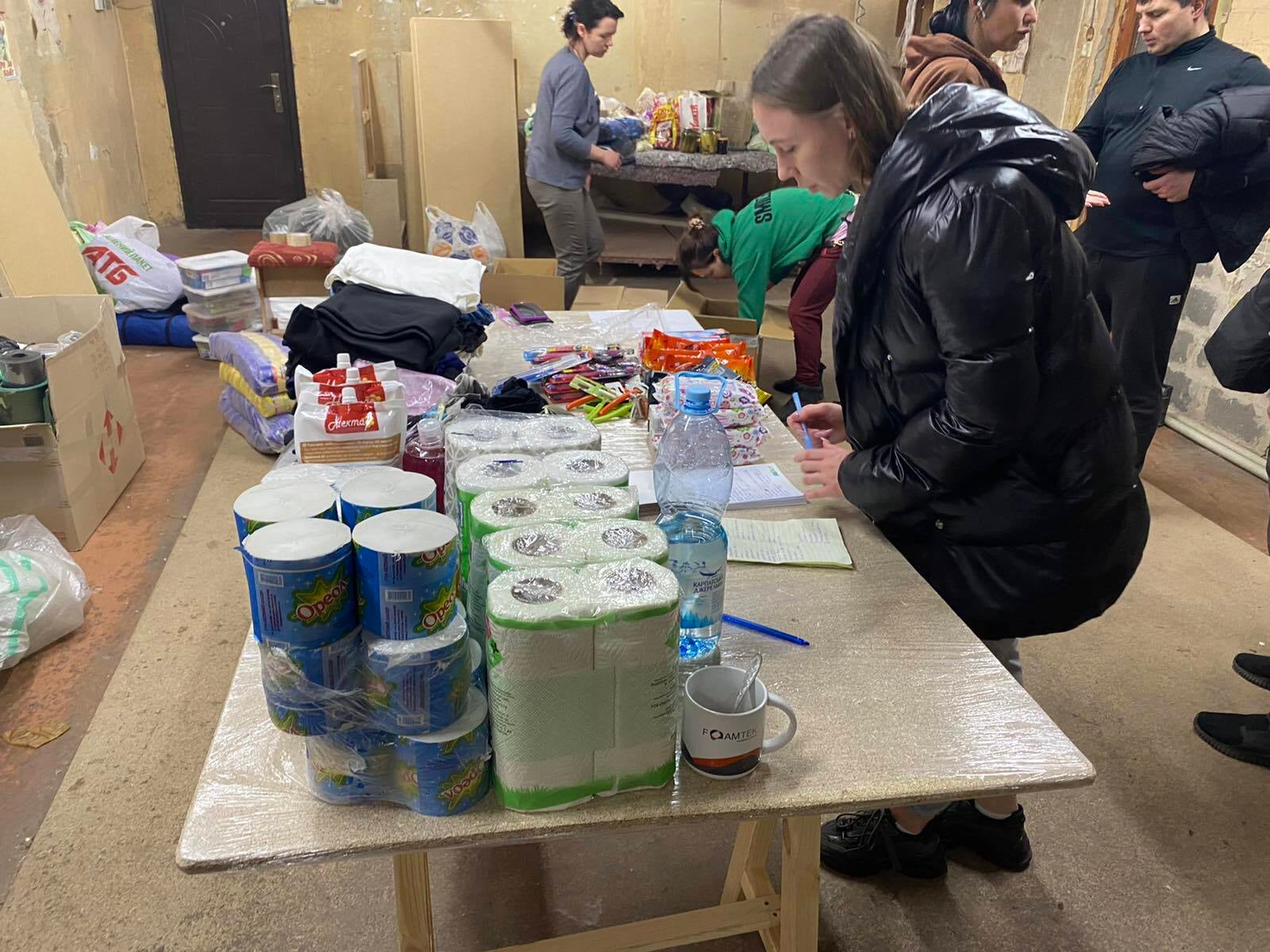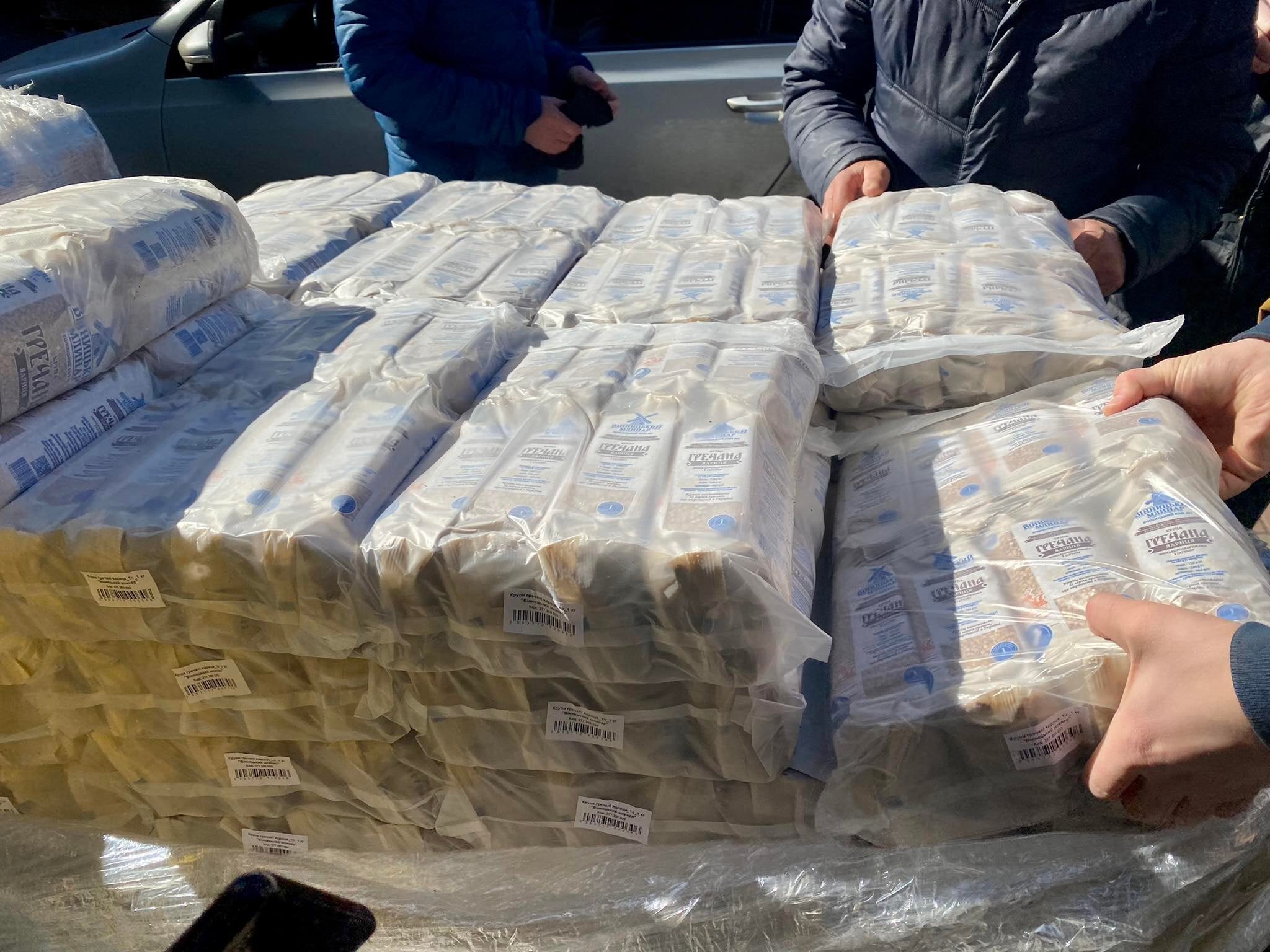‘Universal warriors of good’: Aids activists fought for Ukrainian patients – now they fight for Ukraine
Those who fought to advance Ukrainian democracy have now become warriors in the effort to protect their countrymen sheltering in their homes and bunkers at a time of war, writes Borzou Daragahi


Several weeks before Russia invaded Ukraine, Dima Sherembei began holding a series of meetings and drawing up plans just in case war came to his country. From his office in Kyiv, Sherembei oversees a sprawling charity that provides essential healthcare services to tens of thousands of Ukrainians with HIV across the country.
The group held training sessions about what to do if men with guns swarmed Ukrainian cities, patients or staff were forcibly displaced or enemy invaders occupied their neighbourhoods. They planned out how to deliver medicines to the most vulnerable, in case the worst-case scenario came to pass.
On 24 February, the worst did come to pass. Russia invaded, and the weeks of preparation gave a head start to Sherembei’s organisation, 100% Life, or the All-Ukrainian Network of People Living with HIV.
The group’s response to the war has been a totemic example of crisis management in the most difficult of circumstances. It also shows the important role of Ukraine’s colourful array of civil society groups, which have blossomed since the 2013-14 Maidan uprising against a pro-Kremlin leadership.

Those who fought to advance Ukrainian democracy have now become warriors in the effort to protect their countrymen sheltering in their homes and bunkers at a time of war. Their work merits attention, acclaim and support.
“Our daily routines have given way to emergency hospital runs, ferrying much-needed medicine and supplies to support the wounded,” Oleksander Sushko, head of the International Renaissance Foundation, a democracy and human rights advocacy group in Ukraine, wrote in an essay.
“Some assist in the delivery of materials to Ukraine’s armed forces, and help our neighbours build fortifications to protect our cities,” he continued. “Others work with local business associations to help build supply chains. An army of volunteers help the elderly, the disabled, women, and children with the many challenges of relocation, from funding the gas to move them to providing the food they need to survive.”
Sherembei’s work is particularly sensitive and crucial. People with HIV typically need regular and sometimes complex treatments at clinics under the supervision of physicians and nurses. Missing just one dose might trigger drug-resistant strains of the virus, leading to grave illness or death. More than 240,000 Ukrainians rely on 100% Life’s services to keep them from getting sick or dying.
As the airstrikes and ground invasion commenced, 100% Life’s network of 3,000 employees, scattered across 25 branch offices nationwide, had marching orders on what to do in case violence disrupted their essential work. They had stored vital patient data on cloud servers accessible across Ukraine or even abroad.
They had stocked up on key antiretroviral medicines and dispersed them in veritable safehouses in case supply lines were severed. And once the conflict began, they relocated important infrastructure and supplies to the country’s western frontier, encouraging the most vulnerable patients to relocate away from front lines in eastern and southern Ukraine.
“The idea was to minimise the harm that could be caused by any emotional response,” Sherembei says in an interview conducted over Zoom. “No matter how fearful or anxious they are about the situation, they still have instructions.”
The group, which was once blessed by Sir Elton John and receives support from the European Union, USAid, the World Health Organisation, Bill Gates’s Global Fund and private donations, created what it calls “chains of life”: networks of communication and distribution to allow patients to continue to receive treatments regardless of circumstances.
Sometimes that has meant packing equipment and drugs into vehicles and taking them to the homes of patients who would otherwise have to walk hours to reach a clinic. Sometimes that has meant giving patients lifts to makeshift clinics. And sometimes it has amounted to helping people relocate altogether from dangerous areas into safer parts of the country.
In Kyiv, the group formed in 2001 operates 10 accredited vehicles that allow its social workers and healthcare workers to move relatively freely around the city, despite martial law severely restricting the movement of people. The group serves 12,000 people in the capital.
“Kyiv is a big metropolis that is closed for cars and transportation; everything is stopped,” says Sherembei. “But we continue to provide services no matter how difficult.”
Sheremebi is a stocky, animated father-of-two in his mid-forties whom I met in Kyiv during calmer days for a feature about healthcare reform in eastern Europe. Nowadays he has redirected his considerable energies toward helping his countrymen at a time of war, sometimes going for days without sleep.
He describes one patient infected with HIV, who would have had to walk several hours to reach her clinic. They relocated her closer to another facility, and also set up a system to deliver some medicines to her home.
Other vital services include collecting, packaging and delivering meals to patients too weak or frightened to venture out on their own, as well as checking in with patients at hospitals. They have reached out internationally for support, appealing for cash donations, as well as blood transfusion equipment, medical kits, blankets, mattresses, generators, tents, and fuel.
Since the conflict began the group has also helped others in need, including many outside of its network, providing food and shelter, anything they can, really, to any Ukrainian in need. Hundreds of Ukrainians have come to them seeking help or services, and helping disperse the lingering stigma on those infected with HIV.
“The war erased the boundary between those we normally help and those that need help on the spot,” says Sherembei. “All of our workers become aid workers, regardless of whether they are drivers, cooks, or clinical staff. They can all provide a bed for people to sleep at night. They all become universal warriors of good.”
To keep up to speed with all the latest opinions and comment sign up to our free weekly Voices Dispatches newsletter by clicking here
Sherembei says his organisation, which he co-founded after he himself tested positive for HIV two decades ago, has contingency plans in case Russian invaders enter the city and set up a quisling government, which appears to have been one of President Vladimir Putin’s goals.
“Our patients are not soldiers,” he says. “It means for them it’s not about fighting; it’s about applying maximum effort to protect their own lives and to evacuate the occupied zone without provoking or angering the occupiers, without getting into arguments with them.”
Still, he vows that he will do everything in his power to make sure that day will not come.
“Myself, I will fight,” he says. “I will defend Ukraine so that the enemy does not enter Kyiv, so that Ukraine prevails.”






Join our commenting forum
Join thought-provoking conversations, follow other Independent readers and see their replies
Comments